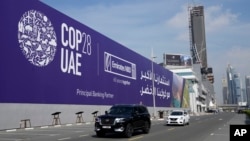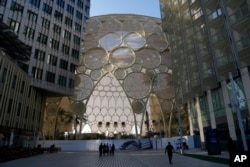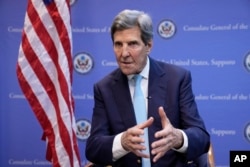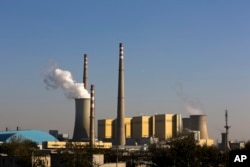When world leaders gather in Dubai beginning Thursday for COP28, this year’s U.N. climate summit, the heads of the world’s two largest economies will be notably absent.
U.S. President Joe Biden and Chinese President Xi Jinping have no plans to attend the two-week event, which is aimed at marshaling governments around the world behind the U.N. Framework Convention on Climate Change (UNFCCC) and the 2015 Paris Agreement goal of limiting global warming to 1.5 degrees Celsius above pre-industrial levels.
Both countries will send high-level representatives. Former Secretary of State John Kerry, the Biden administration’s special envoy for climate change, will attend. China’s climate envoy, Xie Zhenhua, is also expected.
Among the main issues addressed at the conference will be the structure of a “loss and damage” fund meant to compensate low-income countries that are suffering disproportionately from climate change despite having contributed little to its causes.
Another important topic of discussion will be the adoption of an agreement to phase out the use of fossil fuels, the single largest contributor to carbon emissions.
The fossil fuel discussion may be complicated by the fact that the host country, the United Arab Emirates, is one of the world’s largest producers of oil and gas.
UAE oil deals
In a development that may further snarl the talks in Dubai, the news organization Centre for Climate Reporting, in conjunction with the British Broadcasting Corp., on Monday revealed leaked documents suggesting that the COP28 organizing authority in the UAE has scheduled talks about oil and gas development projects during the conference.
The decision to allow the UAE to host the conference was already controversial, especially after Sultan Ahmed Al-Jaber, group CEO of the Abu Dhabi National Oil Co., was named president of COP28.
The reports published Monday contained internal talking points apparently prepared for Al-Jaber ahead of meetings with representatives from various countries, including China, Colombia and Egypt. They appear to declare the UAE’s willingness to develop new fossil fuel projects.
According to the BBC, conference organizers did not deny the accusation and refused to comment further than saying that ”private meetings are private.”
Activists optimistic
While some activists remain troubled by the decision to allow the UAE to host the event, others say the revelations about the oil and gas development talks could actually boost the chances of fossil fuel phase-out language being adopted.
“We're all very clear on where the battle lines are drawn, and with this new article that came out, we're clear on what's really going on behind the scenes, which we all suspected but no one would say outright,” Cherelle Blazer, director of international climate and policy at the Sierra Club, told VOA. “Given all of those factors, if there's more clarity going into this than usual, I'm going to say there’s a good chance.”
Blazer also said she was not concerned about the absence of Biden and Xi.
“The Senate delegation is going to be there. The full U.S. negotiating team will be there. Kerry will be there. So, everyone that needs to be in place for something actionable to happen will be there,” she said.
Global Stocktake
This year’s conference will mark the completion of the most recent Global Stocktake, a two-year process that is conducted every five years to assess progress toward emissions reductions and other goals related to the effort to halt global warming.
While the final results of the process are yet to be announced, an interim report released earlier this year found that progress on various climate initiatives has been “significant yet inadequate” over recent years.
The meeting takes place at a time when the manufacture and installation of green energy development sources is on the rise globally, with costs falling rapidly for many key elements, including the photovoltaic panels used to capture solar energy.
However, experts told VOA that while some regions, like Europe, have greatly accelerated their transition to green energy in recent years, progress has been slower elsewhere. To some degree, that difference was expected, because the emission-reductions goals set following the Paris Agreement were “nationally determined” — meaning that individual countries set their own goals.
Trade complications
Michael Mehling, deputy director of the Center for Energy and Environmental Policy Research at the Massachusetts Institute of Technology, told VOA that the interactions between countries further along in the transition to green energy and those in the early stages of the process are getting increasingly complicated, particularly around trade.
Mehling said the attitude of some countries that have accelerated their energy transition is, “Well, if we cannot force, say, Turkey, or we cannot force China to decarbonize through the UNFCCC-Paris Agreement, because it's nationally driven, we can at least make sure that anything we import from them will have to live up to the same high standards.”
He said some countries find having manufacturing emissions reduction standards imposed on them by restrictive trade requirements understandably frustrating.
“Some of these countries say, ‘Well, wait. We thought we understood the Paris Agreement to say that we can decide how fast we decarbonize our manufacturing. It's not for you to force that on us,’” he said.
The issue is further complicated by the fact that many of the countries that have been decarbonizing at a slower pace are in the Global South and contributed very little to the crisis of global warming but feel they are now being asked to forgo economic development opportunities with little compensation from wealthy countries like the U.S. and China that contributed most to climate change.







